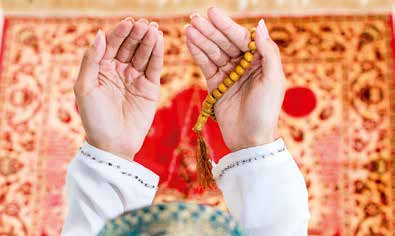From ‘migrants’ to ‘Muslims’
FAU researchers examine how the topics of ‘Islam’ and ‘Muslims’ are discussed and perceived in German cities
When migrants or refugees are the topic of political discussion or news articles, the words ‘Islam’ and ‘Muslims’ usually appear too – migrants from certain parts of the world are often perceived on the basis of religion. Prof. Dr. Georg Glasze from FAU believes that this is a problem, because it means, for example, that socio-political issues can be re-labelled as religious – i.e. Islamic – issues all too quickly.
New research project with DFG funding
In recent times, religious categories, especially ‘Islam’ and ‘Muslim’, have taken on an increasing role in many social and political discussions. Outside of the rather abstract political debates at the national level, FAU cultural geographer Georg Glasze aims to investigate how the topics of ‘Islam’ and ‘Muslims’ have become relevant for politics, administration and community at the level of cities and neighbourhoods as part of a new research project that is being funded by the German Research Foundation (DFG).
Example: school dinners for Muslim children
For example, how is the topic of special school dinners for Muslim children discussed at the local level? Or the construction of a mosque? Who speaks for which groups? How do Muslim organisations, city politics and administration, other religious communities and other members of society interact?
The situation in Erlangen and Osnabrück
A team of researchers from FAU and the University of Osnabrück intend to find answers to their research questions using the cities of Erlangen and Osnabrück as examples. To do so they will observe meetings of the city councils and committees responsible for topics relating to foreign nationals and integration, evaluate the minutes of meetings on interreligious dialogue and media reports, and conduct a wide range of interviews. To enable them to put their findings into context, the researchers have already spoken to people responsible for integration policy in almost all of Germany’s major cities and asked them to share their experiences. ‘Based on our findings so far, interreligious dialogue seems to play a more important role in local administration and politics in Erlangen compared to many other cities in Germany, for example,’ Glasze says.
Looking back: the Gastarbeiter of the 1970s
In addition to analysing the current situation in cities, part of the research project will also look back at the early 1970s, the first time when migrants from a majority Muslim background – the Gastarbeiter – came to Germany in large numbers. Back then, they were referred to as ‘Turks’, ‘Yugoslavs’ or simply ‘Gastarbeiter’ in social debate. How the perception of migrants has changed – with the focus shifting from their origin to their religion – is one of the research questions that will be examined. ‘There is evidence to suggest that events such as the Islamic Revolution in Iran or the September 11 attacks played an important role here. We want to investigate this,’ Glasze explains.
In doing so, we also hope to dispel the idea there is just one homogeneous form of Islam
‘With this project we will show for the first time the many ways in which the topics of ‘Islam’ and ‘Muslims’ are becoming key social elements on the city level,’ the cultural geographer explains. Jan Winkler, a member of Glasze’s team, adds: ‘In doing so, we also hope to dispel the idea there is just one homogeneous form of Islam which is sometimes evident in public debate.’ The researchers hope that their findings will not only provide new insights for research but will also contribute to social and political discussion at the local level.
Further information:
Prof. Dr. Georg Glasze
Phone: +49 9131 8522012
georg.glasze@fau.de
